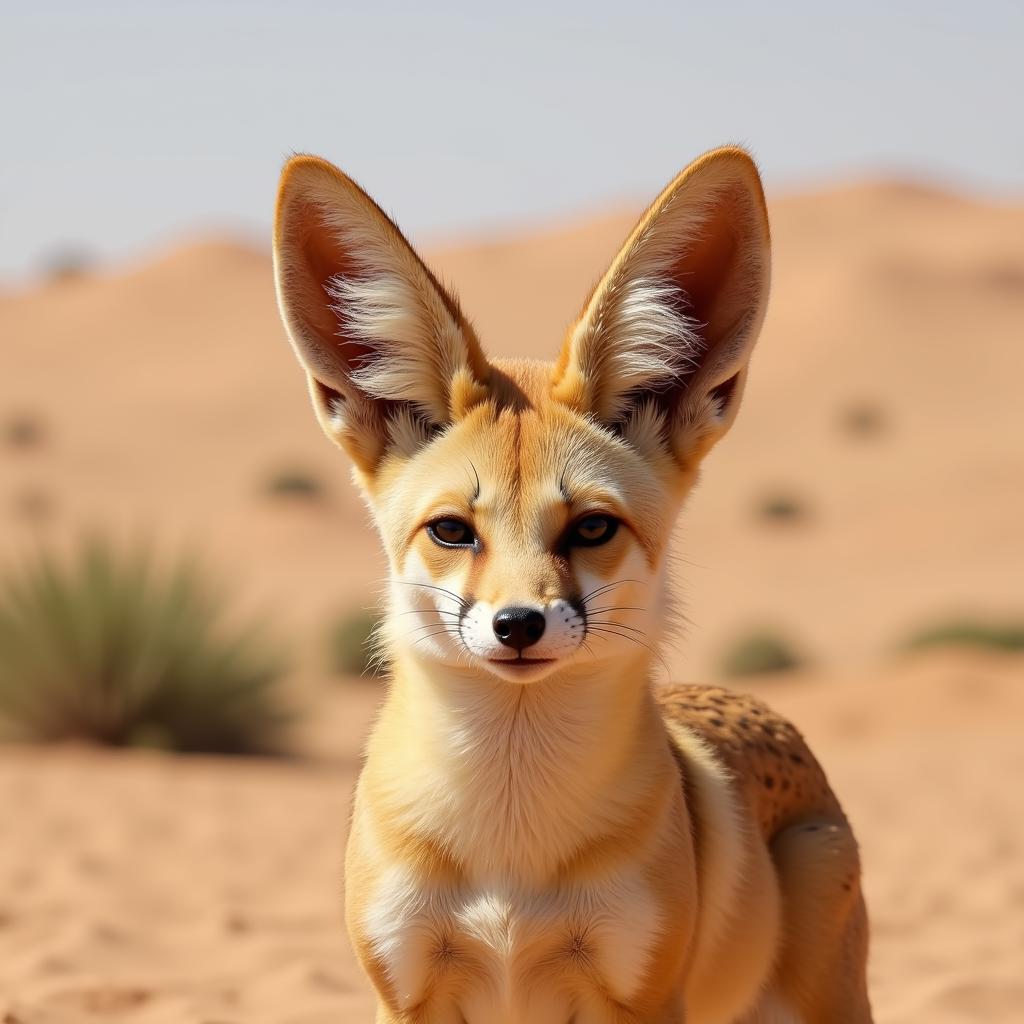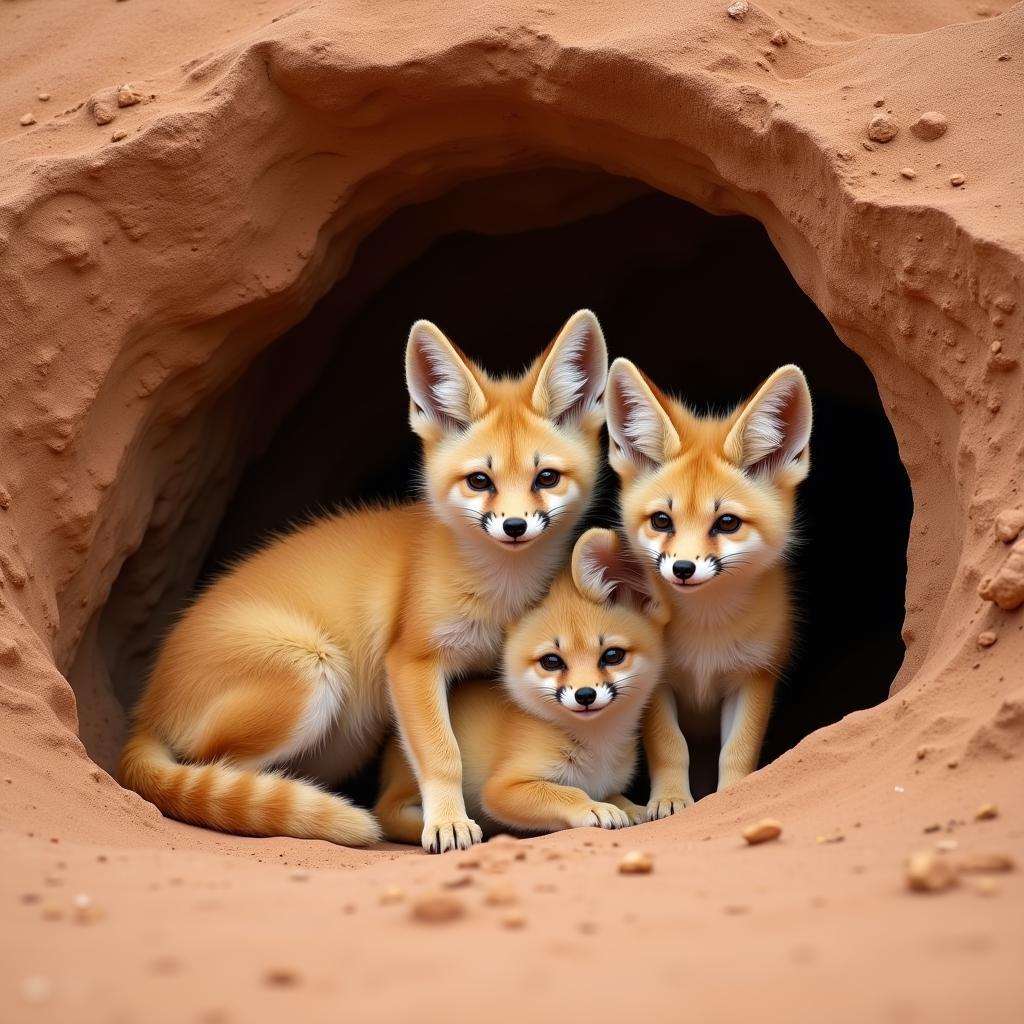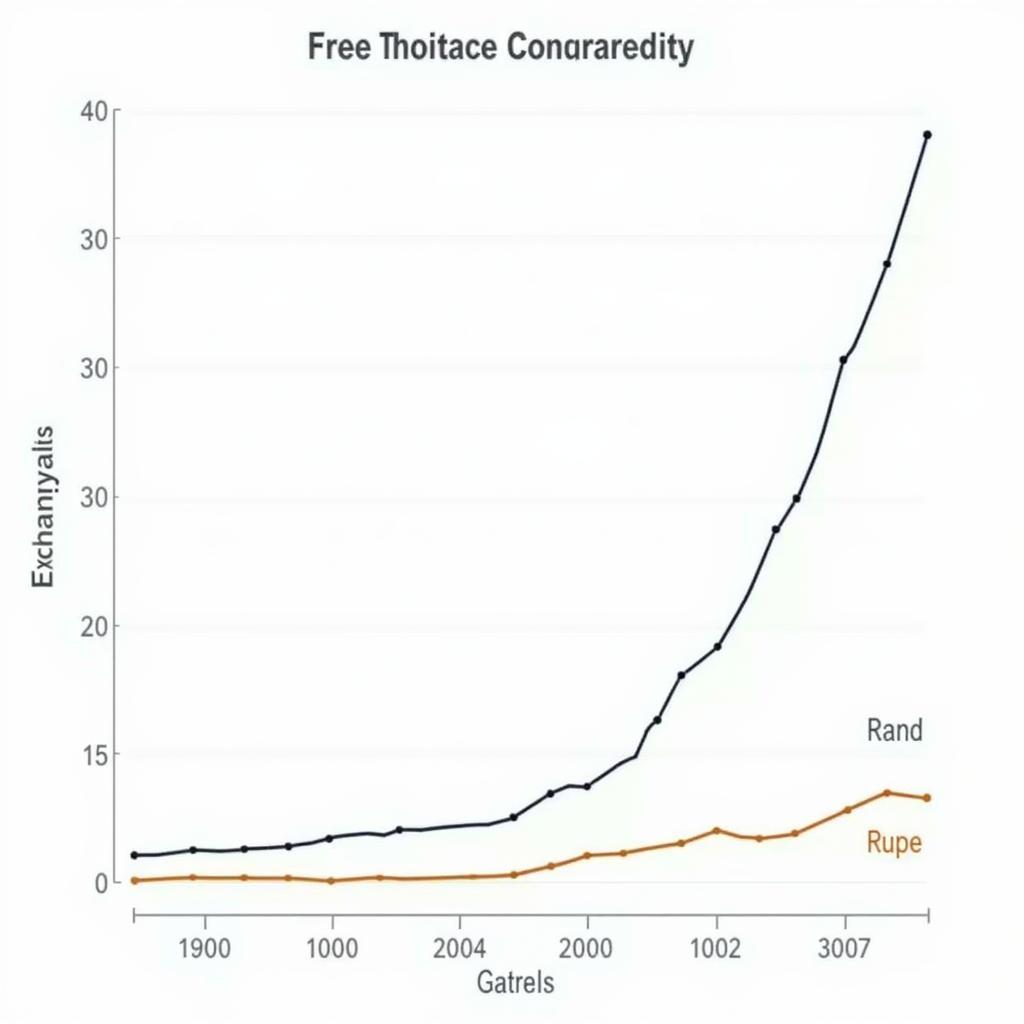The Enchanting African Fennec Fox: Desert Dweller with Distinctive Ears
The African Fennec Fox, a captivating creature of the Sahara Desert and North Africa, is instantly recognizable by its unusually large ears. This tiny canine, the smallest of its kind, has adapted remarkably to its harsh desert home. Their story is a fascinating blend of resilience, resourcefulness, and remarkable adaptations that allow them to thrive in one of the planet’s most challenging environments.
A Master of the Desert Environment
The fennec fox’s most striking feature, its oversized ears, aren’t just for show. These remarkable appendages act as heat radiators, helping to regulate body temperature in the extreme desert heat. The extensive network of blood vessels in their ears allows heat to dissipate efficiently, preventing overheating.
 Fennec fox with ears perked up in the desert
Fennec fox with ears perked up in the desert
But their adaptations go far beyond their ears. Their pale, sandy fur provides excellent camouflage against predators like owls and jackals, while also reflecting sunlight and minimizing heat absorption. Their thick footpads are covered in fur, offering protection from the scorching sand and providing traction on loose surfaces.
Nocturnal Hunters with a Varied Diet
To avoid the scorching daytime temperatures, fennec foxes are primarily nocturnal. Under the cover of darkness, they use their keen hearing and acute sense of smell to hunt. Their diet is surprisingly diverse, consisting of insects, rodents, birds, reptiles, and even eggs and plants.
These resourceful hunters are known to bury their food, creating caches for times of scarcity. Their ability to extract moisture from their food also minimizes their dependence on readily available water sources in their arid environment.
Social Structure and Communication
While often found in pairs, fennec foxes are surprisingly social animals. They live in small family groups, typically consisting of a mated pair and their offspring. Their social interactions are characterized by a variety of vocalizations, including barks, yaps, and even a high-pitched “screaming” sound.
“Observing fennec foxes interact in their natural habitat is truly captivating,” shares Dr. Anika Motis, a leading researcher in desert fauna. “Their complex vocalizations, coupled with their expressive body language, reveal a surprisingly sophisticated social structure for such small creatures.”
These vocalizations, along with scent marking, are essential for communication within their family group and for defending their territory from rivals.
The African Fennec Fox: An Endangered Treasure
Despite their remarkable adaptations, the African fennec fox faces growing threats. Habitat loss due to human encroachment and the illegal pet trade are taking a toll on their populations. It is crucial to support conservation efforts that aim to protect these vulnerable creatures and their fragile desert ecosystem.
 Fennec fox family in their den
Fennec fox family in their den
Understanding the unique adaptations and challenges faced by the African fennec fox is the first step towards ensuring their survival. As we continue to learn more about these captivating creatures, we can work towards a future where they can continue to thrive in their natural habitat.
FAQs
Q: Are fennec foxes good pets?
A: While undeniably cute, fennec foxes are wild animals with specific needs that are difficult to meet in a domestic setting. They require specialized care, spacious enclosures, and experienced handlers.
Q: What is the average lifespan of a fennec fox?
A: In the wild, fennec foxes live for about 10 years. However, with proper care, they can live up to 14 years in captivity.
Q: How do fennec foxes survive in the desert heat?
A: Their large ears act as radiators, dissipating heat and helping to regulate their body temperature. Their pale fur reflects sunlight, and their thick footpads protect them from the hot sand.
Q: What do fennec foxes eat?
A: Fennec foxes are omnivores and have a diverse diet consisting of insects, rodents, birds, reptiles, eggs, and plants.
Q: Are fennec foxes endangered?
A: While not currently classified as endangered, fennec fox populations are declining due to habitat loss and the illegal pet trade.
Explore More
Want to learn more about the fascinating creatures of the African desert? Check out these related articles:
- african desert fox crossword puzzle
- african desert biome animals
- african desert fox la times crossword
For any inquiries or assistance, don’t hesitate to contact us:
Phone: +255768904061
Email: kaka.mag@gmail.com
Address: Mbarali DC Mawindi, Kangaga, Tanzania
Our dedicated customer support team is available 24/7 to assist you.


